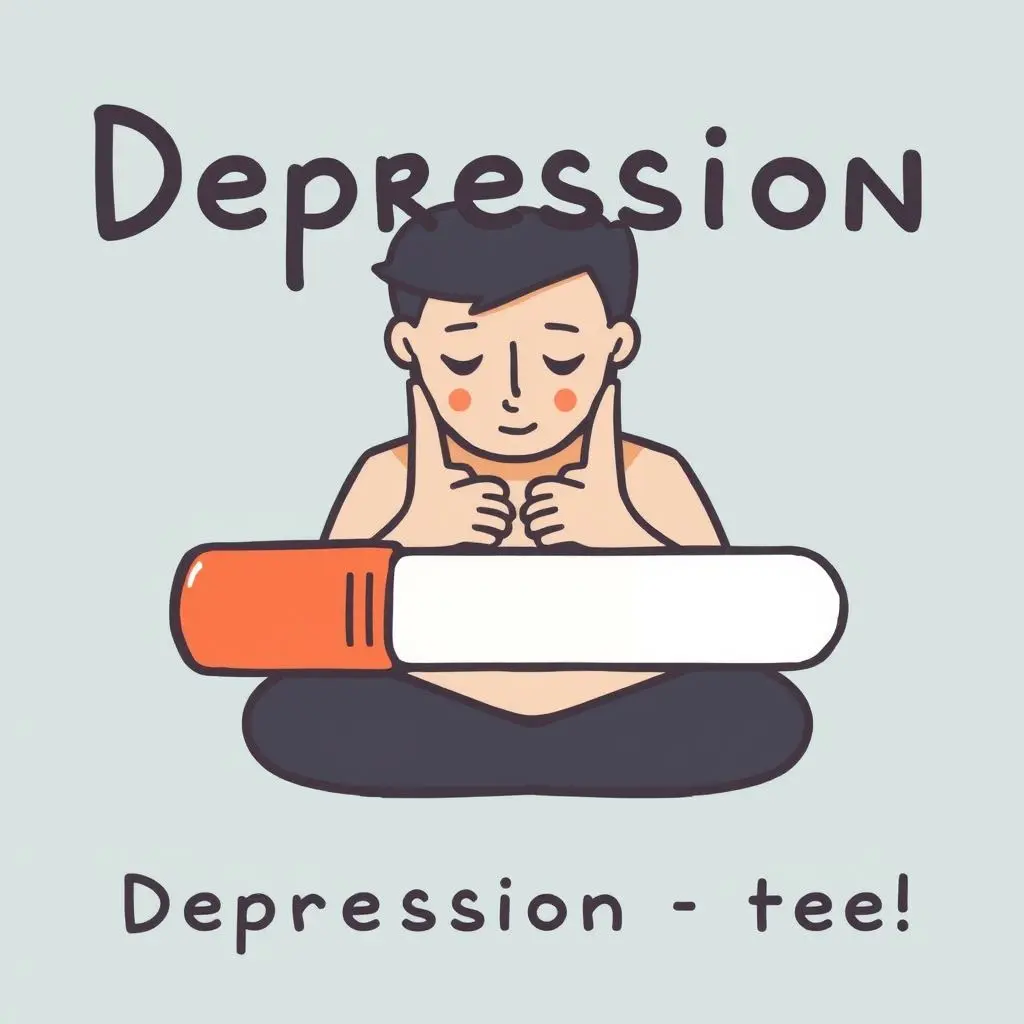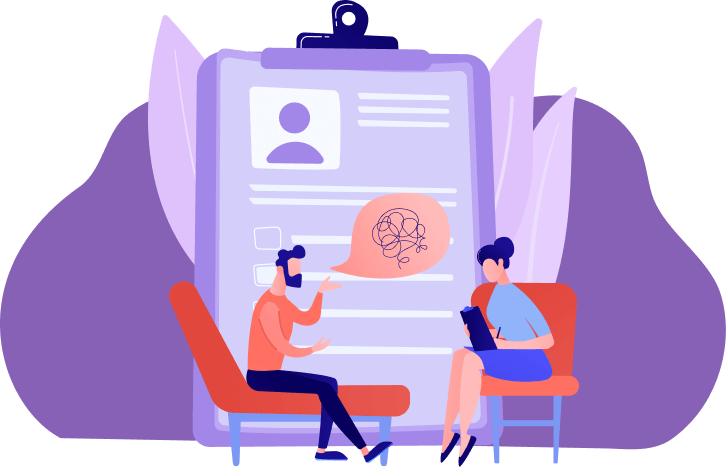
Millions of people experience feelings of sadness, fatigue, or emotional numbness from time to time. But when those feelings persist, disrupt your daily life, or begin to affect your physical health, they may be symptoms of depression. If you’ve been wondering, “Am I depressed?”, a free online depression test can be a simple and effective first step toward understanding your mental state.
In this article, we’ll explore how depression tests work, how to interpret your results, and what steps you can take after taking the test. Whether you’re looking for clarity or seeking a tool to help someone you care about, this guide will help you move forward with more awareness and confidence.
What Is a Depression Test?
Understanding the Purpose of a Depression Screening
A depression test is a self-assessment tool designed to help individuals identify symptoms commonly associated with clinical depression. While it’s not a formal diagnosis, it can provide insight into your mental and emotional well-being.
Based on Clinical Criteria
Most online depression tests are modeled on standardized psychological assessment tools like the PHQ-9 (Patient Health Questionnaire) or similar frameworks used by mental health professionals.
Not a Substitute for Professional Diagnosis
While these tools are helpful, only a licensed mental health professional can make a definitive diagnosis. Online depression tests are intended to encourage you to seek appropriate support if your results indicate potential concerns.
Common Symptoms of Depression
Emotional and Mental Symptoms
- Persistent sadness or emptiness
- Loss of interest in activities once enjoyed
- Hopelessness or pessimism
- Feelings of guilt, worthlessness, or helplessness
- Irritability or frustration
Physical and Behavioral Symptoms
- Fatigue or decreased energy
- Difficulty sleeping or sleeping too much
- Changes in appetite or weight
- Physical aches and pains with no clear cause
- Trouble concentrating, remembering, or making decisions
Suicidal Thoughts
In some cases, depression can lead to suicidal ideation. If you’re experiencing thoughts of self-harm, please seek immediate help from a crisis hotline or medical professional.
Who Should Take a Depression Test?
You Feel “Off” But Can’t Explain Why
Sometimes depression doesn't show up as sadness—it may feel like numbness, brain fog, or being disconnected. If you’ve noticed something isn’t right but can’t name it, a test can help clarify.
You’ve Noticed Lasting Changes in Mood or Behavior
If you've felt down, exhausted, or disinterested in life for more than two weeks, taking a screening could be a smart step.
You’re Supporting a Friend or Family Member
Maybe you're concerned about a loved one and want to better understand their behavior. Taking a test yourself or encouraging them to try one can open a healthy dialogue.
You’re Not Ready to See a Therapist Yet
If you're unsure about therapy or afraid to talk to someone in person, an online depression test offers a private, nonjudgmental space to begin the conversation—with yourself.
How Online Depression Tests Work
Simple Format, Honest Responses
Online tests usually include 8–15 multiple-choice questions. You’ll be asked about:
- How often you’ve felt low, anxious, or tired
- Changes in your sleep and eating habits
- Your level of interest in daily activities
Quick Results, Instant Insight
Once completed, the test provides a score or category—ranging from mild to severe depression. Some tools also offer a breakdown of specific symptom categories.
Confidential and Free
Most reputable online tests are anonymous. You don’t need to sign up or share personal information unless you choose to seek professional help.
Where to Take a Reliable Depression Test Online
Mental Health America (MHA)
Their online screening is quick, clinically based, and offers resources for follow-up.
Psychology Today
Known for connecting people with therapists, they also offer free self-assessments.
BetterHelp and Talkspace
These platforms provide brief quizzes and direct access to licensed therapists if you decide to pursue counseling.
Your Local Healthcare Provider’s Website
Many clinics and mental health centers offer free self-screenings through their online portals.
What to Do After You Take the Test
Interpret Your Score Carefully
Most tests include guidance on how to read your results. A high score doesn’t mean you’re “broken”—it’s an indicator that further support may be helpful.
Consider Professional Evaluation
If your score falls in the moderate or severe range, schedule a visit with a mental health professional. They can perform a full assessment and discuss treatment options.
Start Tracking Your Mental Health
Begin journaling your moods, energy levels, and sleep patterns. This helps identify patterns and provides valuable information for your doctor or therapist.
Talk to Someone You Trust
Opening up to a family member, friend, or colleague can reduce isolation and help you take the next step toward healing.
Depression Treatment Options
Therapy (Talk Therapy)
Cognitive Behavioral Therapy (CBT), Interpersonal Therapy (IPT), and other forms of counseling have been proven effective for treating depression.
Medication
Antidepressants, when prescribed by a psychiatrist or general practitioner, can help regulate brain chemistry and alleviate symptoms.
Lifestyle Changes
Exercise, improved sleep, nutrition, and reducing stress through meditation or hobbies can all positively impact mental health.
Support Groups
Connecting with others who understand what you're going through can provide emotional relief and practical coping strategies.
Emergency Help
If you're having suicidal thoughts or feel you're in immediate danger, call 988 (U.S. Mental Health Crisis Line) or visit the nearest emergency room.
Myths About Depression and Online Testing
“Taking a test means I’m weak.”
Actually, recognizing your emotions and taking steps to understand them shows strength and self-awareness.
“If the test says I’m depressed, I must take medication.”
Not true. Many people treat depression effectively through therapy, lifestyle changes, or short-term interventions.
“Online tests aren’t accurate.”
While not diagnostic tools, well-designed screening tests based on clinical criteria can offer valid insights and encourage timely help.
Why Early Detection Matters
Prevents Symptoms From Worsening
Early intervention can reduce the intensity and duration of depression.
Improves Relationships and Productivity
Addressing your symptoms can enhance communication, focus, and energy—both at home and work.
Saves Lives
In severe cases, untreated depression can lead to self-harm or suicide. Identifying the issue early can be life-saving.
Final Thoughts: Take the First Step Toward Healing
Mental health is just as important as physical health. If you’ve been feeling “off,” sad, or disconnected, taking a free online depression test could be your first step toward understanding what’s going on.
This simple, confidential tool can provide clarity, validate your feelings, and guide you toward the next step—whether that’s lifestyle adjustments, therapy, or simply learning to be kinder to yourself.
You’re not alone, and you don’t have to face it without support. Start with knowledge. Start with you.









